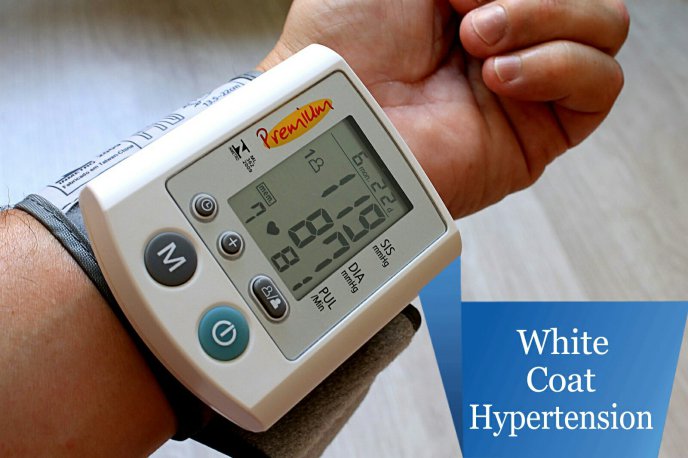
White coat hypertension is a situation when your blood pressure is higher in a doctor’s chamber, but is normal when measured at home. The term white coat hypertension is derived from the white coats of the health care professionals.
Causes and dangers of white coat hypertension?
It’s not strange for some people to feel a bit anxious while sitting in front of their physician. This increased anxiety can sometimes elevate their blood pressure levels temporarily. However some doctors think that white coat hypertension is not a cause of concern since it is just a temporary surge, and the blood pressure normalizes once you are out of the doctor’s room. While there are cardiologists who believe that, white coat hypertension is a warning that signals to the risk of developing certain cardiovascular conditions like stroke, heart attack and heart failure. The same can be true for those who have masked hypertension, such patients have lower blood-pressure in the doctor’s office as compared to their home readings.
How to handle white coat hypertension?
It may be harmful to prescribe medication for hypertension by recording a single blood pressure reading. Unnecessary antihypertensives can cause serious condition like hypotension – a state, when blood pressure drops below the normal value.
If you are diagnosed with white coat hypertension, the cardiologist will talk to you about getting a blood pressure monitor that can be used at home. This may help you to record the actual blood pressure levels. Assuming that, the blood pressure is much better controlled at home, when you are in a relaxed atmosphere.
The second method is to use an ambulatory blood pressure monitor which can track your blood pressure up to 24 hours. It can take readings during the day as well as during sleep. Both methods can help to determine if your blood pressure rises only in the physician’s office, or if it’s a persistent condition that needs treatment.
However, you may also go through periods of increased blood pressure because of a stressful situation, not taking your blood pressure medicine regularly, eating food high in table salt or consuming excess caffeine. Over a period, temporary increment in blood pressure, either at your doctor’s office or otherwise can damage your blood vessels and increase the risk of more serious conditions.





